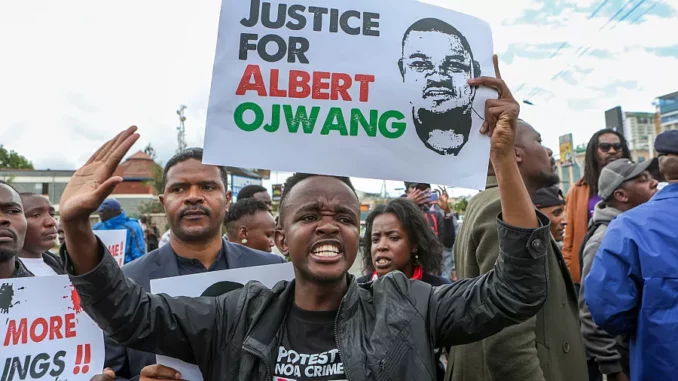
The death of Albert Ojwang, a 31-year-old Kenyan activist arrested for accusing a senior police officer of corruption, has escalated into a national scandal. Initially claimed by Police to be a suicide, the case took a dramatic turn when a Government-led postmortem revealed on Tuesday, June 10, fatal head injuries, neck compression, and signs of violent assault. The Law Society of Kenya condemned the irregular transfer of Ojwang from Western Kenya to Nairobi, citing a breach of legal procedures.
The revelations have ignited renewed public anger in a country still reeling from last year’s deadly protests against tax hikes and corruption. Demonstrators flooded the streets, targeting Deputy Inspector-General Eliud Kipkoech Lagat, who is widely seen as the central figure in the unfolding tragedy. Protesters demanded accountability and justice, insisting that Ojwang’s injuries suggest he was murdered in police custody. Activists say the presence of self-defence wounds reinforces this claim.
As pressure mounts, five officers have been suspended to allow independent investigations. Veteran opposition figure Raila Odinga joined calls for justice, warning that such deaths diminish public confidence in national institutions. With nearly 25 million Kenyans grappling with food insecurity and governance challenges, Ojwang’s death has become emblematic of a deeper crisis of trust between citizens and the state.
